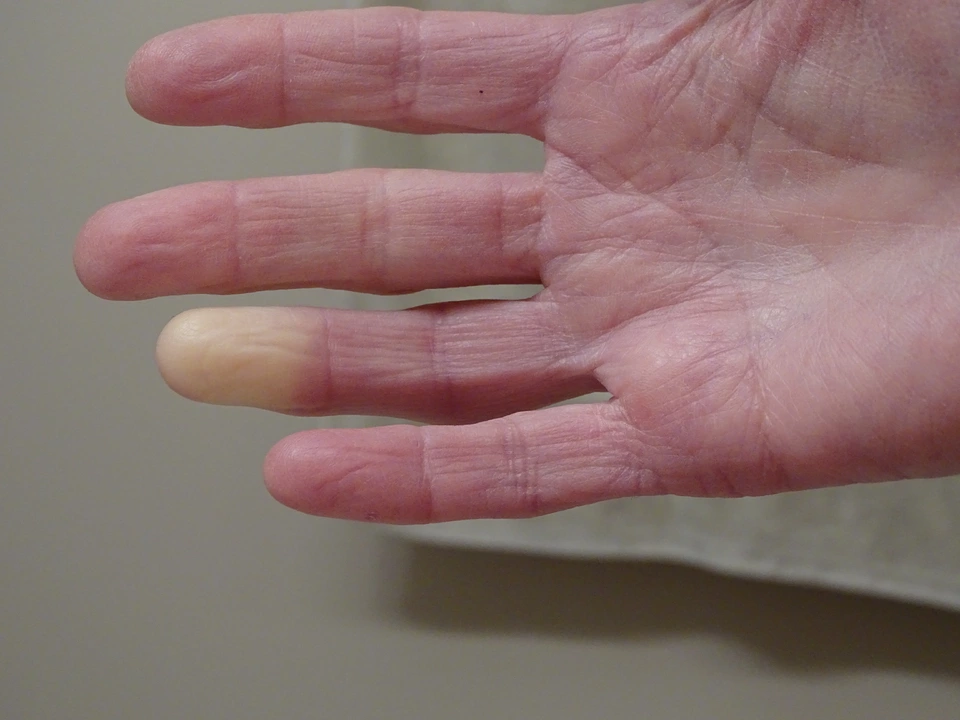Raynaud's Phenomenon: What Triggers It and What Helps
Do your fingers or toes go white, then blue, then red when it's cold or you feel stressed? That's Raynaud's phenomenon — a vasospasm (tiny blood vessels shutting down temporarily) that cuts blood flow to extremities. Most cases are called primary Raynaud's and are harmless, but some people have a secondary form linked to autoimmune disease or medications. Knowing the difference matters for treatment and safety.
Quick, useful fixes you can use right away: warm your hands and feet (gloves, warm water, hand warmers), avoid sudden exposure to cold, stop smoking, limit caffeine before cold exposure, and manage stress with slow breathing. Simple moves like rubbing your hands together or moving your fingers to get blood flowing work fast in mild attacks.
When to see a doctor
If attacks are frequent, severe, cause sores or ulcers, or only affect one side, see a clinician. Also talk to a doctor if you notice other signs — joint pain, rash, or bruising — those can point to a secondary cause that needs testing. A clinician will check for circulation problems, autoimmune markers, and review your medicines to find possible triggers.
Treatment options and what actually helps
For many people, lifestyle measures and protecting from cold are enough. When drugs are needed, the most-used class is calcium channel blockers (CCBs). Nifedipine or felodipine can reduce the number and severity of attacks by relaxing blood vessels. We have a practical guide on felodipine use and safe online ordering if you need more info on that option.
Avoid or review beta-blockers if you have Raynaud's: drugs like atenolol can make symptoms worse by promoting vasoconstriction. If you're on blood pressure meds and notice Raynaud's starting or getting worse, ask your prescriber about alternatives — ACE inhibitors or ARBs (like lisinopril or losartan) don't typically worsen symptoms and may be better options for some people.
Other options for resistant cases include topical nitrates, PDE-5 inhibitors, and, in severe situations, intravenous prostaglandins or procedures like sympathetic nerve blocks. These are specialist-level treatments, so you'll likely see a rheumatologist or vascular specialist for them.
Practical note about buying meds: if you consider ordering medication online, pick licensed pharmacies, keep prescriptions, and read product reviews. Our site has step-by-step articles on safely buying blood pressure and related drugs online, like felodipine, atenolol, lisinopril (Zestril), and others — all aimed at helping you stay safe and informed.
Bottom line: protect from cold, drop smoking, review meds with your doctor, and use a CCB if attacks interfere with daily life. If you see skin breaks, steady worsening, or other autoimmune signs, get evaluated sooner rather than later.
Want more on medication choices or how certain blood pressure drugs affect Raynaud's? Browse our practical guides and drug reviews for clear, no-nonsense info you can use right away.

